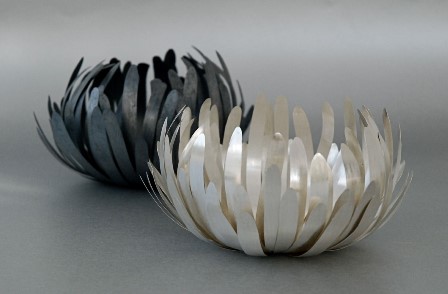Explorative Materiality and Knowledge. The Role of Creative Exploration and Artefacts in Design Research
DOI:
https://doi.org/10.7577/formakademisk.651Keywords:
design, research, practice, knowledge, creative exploration, artefactAbstract
Juxtaposing the nature of design and the foundations of research in the traditional science and humanities disciplines puts their differences into sharp relief. The comparison highlights the key characteristics of design – its creative and experiential nature – which any design research must take into account, as well as the theoretical foundations of research. The aim of this article is to develop an understanding of the ontological, epistemological and methodological issues of design research, and to offer a framework that can embrace equally the notions of creativity and experiential knowledge, and of academic rigour. Furthermore,the potential roles of the design process and artefact within research are examined within this theoretical framework, which suggests that design processes and artefacts can – if appropriately framed – play an important partin the research process, facilitating an approach commensurate with the aims ofdesign enquiry. A case study of the Niedderer’s own work serves to illustratethe balance and integration of theory and (creative) practice within the research process, and how this integration can enable a multi-layered contribution to the theoretical and practical advancement of the field.
Downloads
Published
2013-08-30
How to Cite
Niedderer, K. (2013). Explorative Materiality and Knowledge. The Role of Creative Exploration and Artefacts in Design Research. FormAkademisk, 6(2). https://doi.org/10.7577/formakademisk.651
Issue
Section
Invited Articles
License
Authors who publish with this journal agree to the following terms:
- Authors retain copyright and grant the journal right of first publication with the work simultaneously licensed under a Creative Commons Attribution 4.0 License that allows others to share the work with an acknowledgement of the work's authorship and initial publication in this journal.
- Authors are able to enter into separate, additional contractual arrangements for the non-exclusive distribution of the journal's published version of the work (e.g., post it to an institutional repository or publish it in a book), with an acknowledgement of its initial publication in this journal.
- Authors are permitted and encouraged to post their work online (e.g., in institutional repositories or on their website) prior to and during the submission process, as it can lead to productive exchanges, as well as earlier and greater citation of published work (See The Effect of Open Access).
- The author(s) must manage their economic reproduction rights to any third party.
- The journal makes no financial or other compensation for submissions, unless a separate agreement regarding this matter has been made with the author(s).
- The journal is obliged to archive the manuscript (including metadata) in its originally published digital form for at least a suitable amount of time in which the manuscript can be accessed via a long-term archive for digital material, such as in the Norwegian universities’ institutional archives within the framework of the NORA partnership.
The material will be published OpenAccess with a Creative Commons 4.0 License which allows anyone to read, share and adapt the content, even commercially under the licence terms:
This work needs to be appropriately attributed/credited, a link must be provided to the CC-BY 4.0 licence, and changes made need to be indicated in a reasonable manner, but not in any way that suggests that the licensor endorses you or your use.



